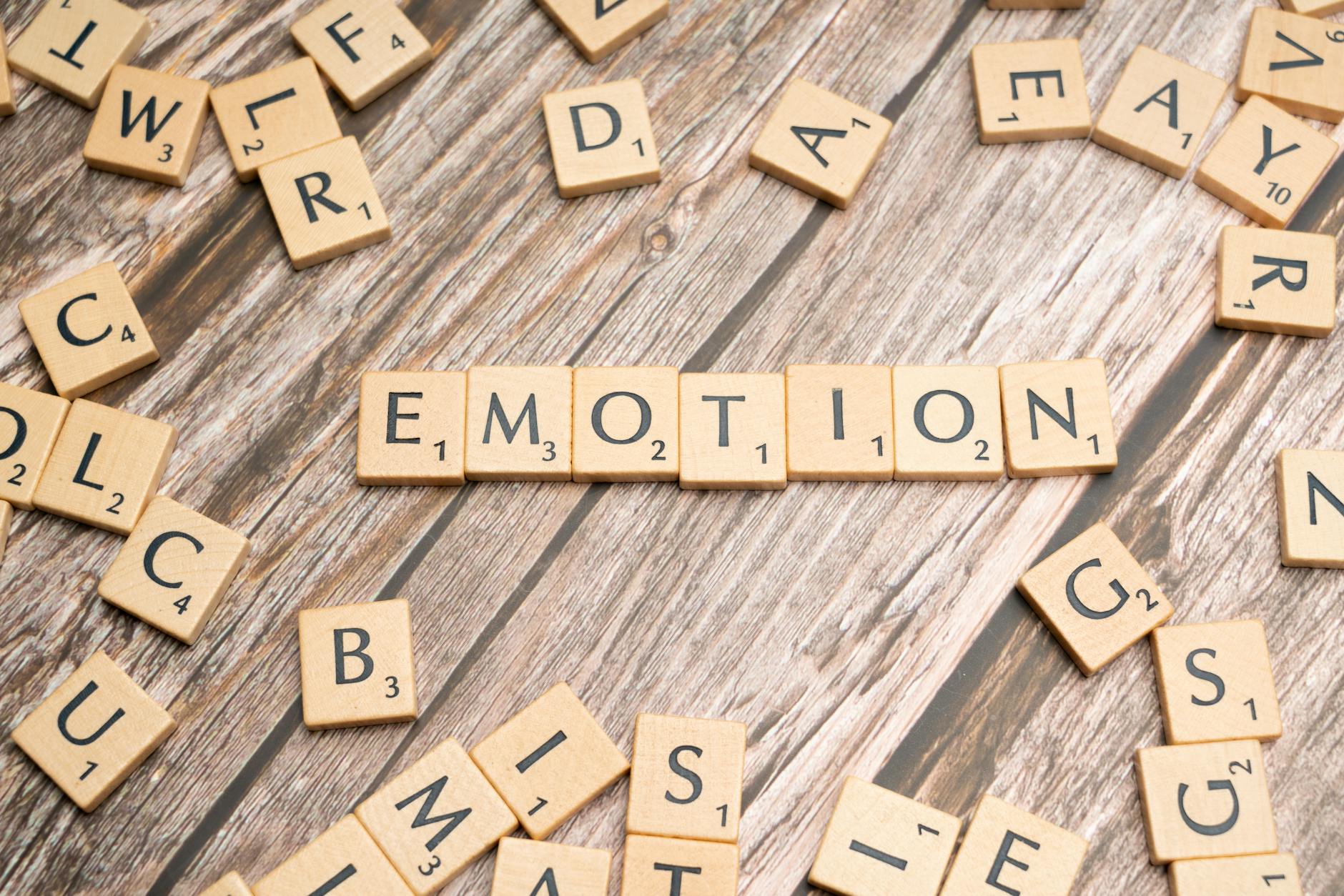The Science Behind EQ, Resilience & Agility

Why These 3 Skills Matter Now More Than Ever
In today’s fast-changing world, emotional intelligence (EQ), resilience, and agility aren’t “nice-to-haves.” They are life-saving, success-defining skills. Research across psychology, neuroscience, and leadership shows that people with high EQ, strong resilience, and mental agility outperform peers in school, work, relationships, and health.
📈 Performance: Harvard Business Review reports EQ accounts for a large share of what sets high performers apart when technical skills are similar.
🧠 Resilience is learnable: The American Psychological Association (APA) emphasizes resilience as a teachable, buildable capacity
🧭 Agility wins in VUCA: McKinsey & Co. shows mental agility predicts leadership success and innovation in volatile, uncertain, complex, and ambiguous environments.
Emotional Intelligence (EQ) — Your Inner Operating System
The Power to Recognize, Regulate & Relate: EQ is your ability to understand, manage, and express emotions — while empathizing with others.
High EQ = stronger mental health, relationships, academic success, and long-term wellbeing.
Low EQ = struggles across mental, emotional, physical, social, financial, and relational domains.
🔎 Core Signs of Low EQ
- Poor self-awareness — can’t identify emotions or their impact on others.
- Low empathy — struggles to connect with others’ feelings.
- Poor regulation — quick temper, easily overwhelmed, hard to calm.
- Rigid communication — blunt, dismissive, or insensitive tone.
- Relationship friction — frequent misunderstandings, conflict, or broken trust.
🧩 Common Causes & Contributors
- Upbringing & environment — homes/classrooms that ignore emotions stunt EQ growth.
- Unprocessed trauma — adversity disrupts regulation; healing improves EQ.
- Cultural/social norms — some families/cultures suppress expression, limiting EQ skills.
- Mental health conditions — ADHD & others can impair emotional regulation.
📉 Impact of Low EQ Across Life Domains
🧠 Mental
- More stress reactivity & weaker problem-solving.
- Stress hijacks executive functions (memory, focus, decision-making).
😞 Emotional
- Higher risk of anxiety & depression.
- Studies show low EQ directly links to poor mental health.
🩺 Physical
- Chronic stress → headaches, poor sleep, hypertension, and higher disease risk.
- EQ normally buffers stress — low EQ removes this protection.
🧑🤝🧑 Social
- Poor teamwork & daily interactions.
- Strong EQ = better leadership, group harmony, and cooperation.
💼 Career & Finances
- EQ predicts job performance, career growth, and satisfaction.
- Low EQ → missed promotions, poor workplace relationships, slower progression.
💞 Relationships
- Low EQ = higher conflict, less satisfaction.
- High EQ = stronger romantic bonds, better long-term connection.
Resilience — Bouncing Back from Life’s Storms: Not Avoiding Stress—Learning to Thrive Through It
In a world of constant pressure and unexpected change, resilience is the power to recover, adapt, and move forward. It’s not something you’re born with—it’s something you practice.

Why Choose Transformationwithin Coaching Center
Not Therapy. Not School. A Safe, Science-Backed Space to Grow.
At Transformationwithin Coaching, we fuse science, soul, and strategy to build life-changing emotional skills in children, teens, and adults. Whether you’re a parent, teen, educator, or professional healing from the past — we meet you with wisdom, warmth, and practical tools for lifelong transformation.
🌟 Core Skills We Teach
- 👀 Self-Awareness — Recognize emotional triggers & patterns
- 🌬️ Emotional Regulation — Calm your mind & shift destructive reactions
- 💗 Empathy — Develop deeper social understanding & compassionate responses
- 🗣️ Assertive Communication — Speak with confidence (not aggression)
- 🔥 Self-Motivation — Reignite purpose & inner drive
📲 How We Deliver Transformation
- 🧠 On-demand growth, on your terms — Short, focused videos help you build core skills steadily, anytime, anywhere.
- 🌬️ Calm-first learning — We prime the body & mind for learning, so you absorb faster and apply skills under pressure.
✨ Change is constant.
At TransformationWithin, we train your brain to flow instead of freeze. 🌊
Core Signs of Poor Resilience
A person with low resilience may show some or many of these patterns:
- Easily overwhelmed by stress – small challenges feel unmanageable.
- Slow recovery after setbacks – stays stuck in disappointment, grief, or anger for long periods.
- Avoidance of challenges – prefers to stay in a comfort zone to prevent failure.
- Negative self-talk – frequent “I can’t” or “This always happens to me” mindset.
- Low adaptability – struggles with change and uncertainty.
- Emotional overreaction – intense frustration, anger, or sadness over minor issues.
- Loss of motivation – quickly gives up when faced with obstacles.
Common Contributors to Poor Resilience
- These can combine over time to weaken a person’s coping capacity:
- Trauma or prolonged adversity – abuse, neglect, loss, or chronic stress without healthy support.
- Lack of emotional intelligence – difficulty managing emotions during hardship.
- Poor stress management skills – no effective coping tools for pressure or setbacks.
- Negative thinking habits – pessimism, catastrophizing, or perfectionism.
- Unhealthy environment – toxic workplaces, unstable home life, or poor social support.
- Chronic health issues – physical pain or fatigue, reducing mental and emotional reserves.
- Lifestyle factors – poor sleep, unhealthy diet, minimal exercise, or substance abuse.
Eye-opening stats:
- 1 in 3 children worldwide experience adversity that affects emotional development.
- South Africa reports high youth trauma exposure.
- Resilient children are less likely to experience depression later in life.
- Resilience is like a muscle—the more you work it, the stronger it gets. Our coaching builds it from the inside out.
Impacts of Poor Resilience Across Life Domains
Mentally
- Higher risk of anxiety, depression, and burnout.
- Reduced problem-solving and decision-making ability under pressure.
- Mental fatigue and difficulty concentrating.
Emotionally
- Difficulty regulating emotions during stress.
- Greater emotional instability and mood swings.
- Lower self-esteem and sense of self-worth.
Physically
- Weakened immune system due to prolonged stress.
- Increased risk of chronic illness (heart disease, hypertension, gut issues).
- Fatigue, headaches, and poor sleep quality.
Financially
- Struggles to recover from financial setbacks or job loss.
- Missed opportunities due to fear of risk or change.
- Career stagnation from avoiding challenges.
Socially
- Withdrawal from friends and community support.
- Difficulty working in teams under pressure.
- Reduced social confidence, leading to isolation.
Relationally
- Conflict escalation during difficult times.
- Breakdown in trust and communication.
- Strained family or partner relationships due to constant stress.
Agility — The Science of Flexibility in Thinking and Living
Emotional Agility: Let Go of Rigid Reactions, Choose Growth
Coined by Harvard psychologist Dr. Susan David, emotional agility is the capacity to face emotions with curiosity, step out of old patterns, and act in line with your values, especially under pressure. WHY AGILITY MATTERS:
Why agility matters:
🎒 Teens with higher agility cope better with academic and peer pressure.
💡 Agility reduces burnout and boosts creative problem-solving.
🎯 Adults trained in agility are more likely to set and maintain long-term goals.
Core Signs of Poor Agility (Agility = mental, emotional & behavioral flexibility, adapting quickly to change, uncertainty, and challenges.)
- Rigid thinking – struggles to see alternative perspectives or solutions.
- Resistance to change – discomfort or fear when routines or plans shift.
- Slow decision-making – overanalyzes or freezes in uncertain situations.
- Inflexible problem-solving – insists on one “right” way even when it’s failing.
- Difficulty learning new skills – easily discouraged by unfamiliar tasks.
- Emotional rigidity – hard to shift mindset after disappointment or failure.
- Overreliance on past success – sticks to “what worked before” even if outdated.
Common Contributors to Poor Agility
- Fear of failure – avoids risk to prevent embarrassment or loss.
- Low self-confidence – doubts ability to adapt or learn.
- Past negative experiences – associates change with pain or loss.
- Lack of exposure – little experience with diverse situations or cultures.
- Perfectionism – avoids trying unless guaranteed to succeed.
- Unprocessed trauma – change feels unsafe or threatening.
- Chronic stress – stuck in survival mode, reducing flexibility.
- Rigid environments – schools, families, or workplaces that punish mistakes.

Impacts of Poor Agility Across Life Domains
Mentally
- Reduced adaptability in problem-solving.
- Mental fatigue from overthinking changes.
- High stress in unpredictable environments.
Emotionally
- More frustration and anxiety during transitions.
- Difficulty letting go of past failures or disappointments.
- Emotional burnout from resisting change.
Physically
- Stress-related health problems (headaches, muscle tension, high BP).
- Sleep disturbances during uncertainty.
- Lower energy from constant stress activation.
Financially
- Missed career or business opportunities.
- Struggles to pivot during economic/industry shifts.
- Job insecurity from outdated skills or methods.
Socially
- Strained teamwork when group strategies change.
- Difficulty integrating into new social circles.
- Avoidance of diverse environments
Relationally
- Conflicts when life plans shift unexpectedly.
- Difficulty supporting others through change.
- Loss of closeness when unable to adapt to relationship changes.
The Neuroscience: How EQ, Resilience & Agility Rewire the Brain–Body System
Top-Down Control
- EQ strengthens the prefrontal cortex (planning, impulse control)
- Improves oversight of the amygdala (threat & reactivity)
- Result: calmer, wiser decisions under stress
Neuroplasticity in Action
- Focused training (like mindfulness) reshapes gray matter
- Boosts learning, emotional regulation, self-awareness & perspective-taking
- These are core skills for EQ & resilience
Nervous-System Loop
- Heart-Rate Variability (HRV) reflects vagal tone & flexible regulation
- Higher HRV = stronger executive control & emotional balance
- HRV-based breathing & biofeedback improve anxiety, mood & performance
Sleep Synergy
- Poor sleep decouples prefrontal control from the amygdala
- Protecting sleep supercharges emotional skills training
The Takeaway
- Train your mind. Protect your sleep. Tune your nervous system.
That’s how you build the biological platform for EQ, resilience, and agility.
The Context: Why South Africa & the World Need These Skills Now
Global reality: Children and adolescents face historic levels of adversity and distress. Protective skills (EQ, resilience, agility) are now essential in schools, families, and communities.
South African lens: Studies document high exposure to violence and trauma among adolescents, with clear links to anxiety, depression, and school difficulties. Trauma-informed, skill-building interventions that strengthen coping and family connection are urgently needed.
Lifespan impact: Resilience doesn’t just feel better—it protects health. Higher psychological resilience is associated with better long-term outcomes, including lower all-cause mortality in older adults.
Our Programmes
Our coaches provide comprehensive interventional support for students through both group and individual program options.
Get In Touch
Reach out to learn more about how we can help, or if you have any questions or concerns
